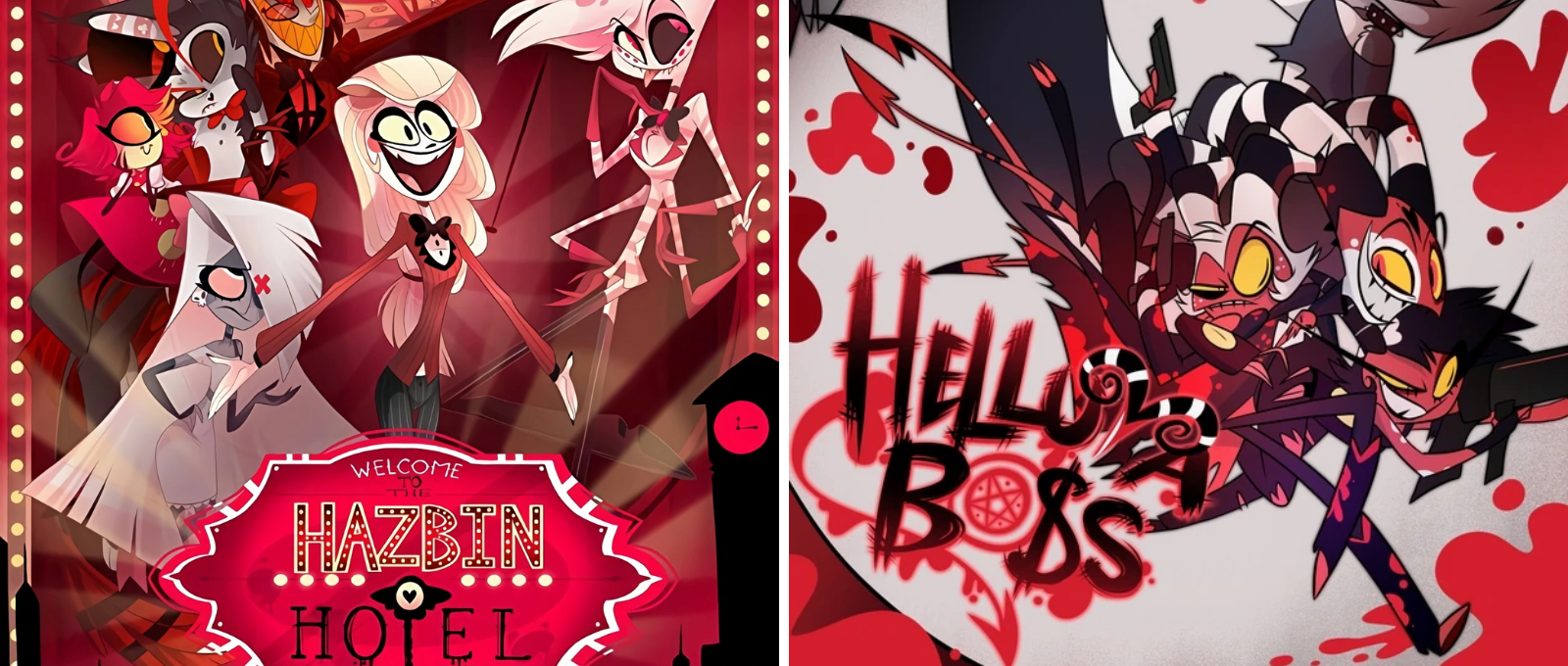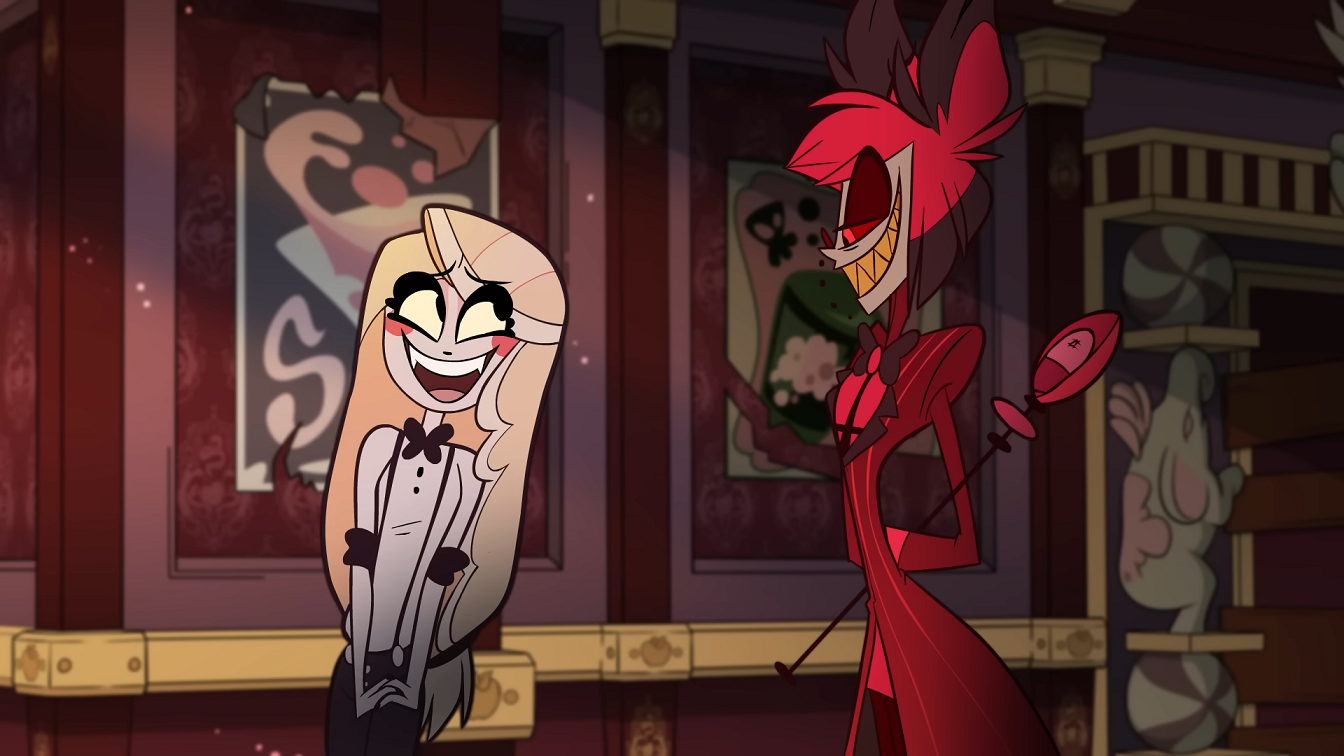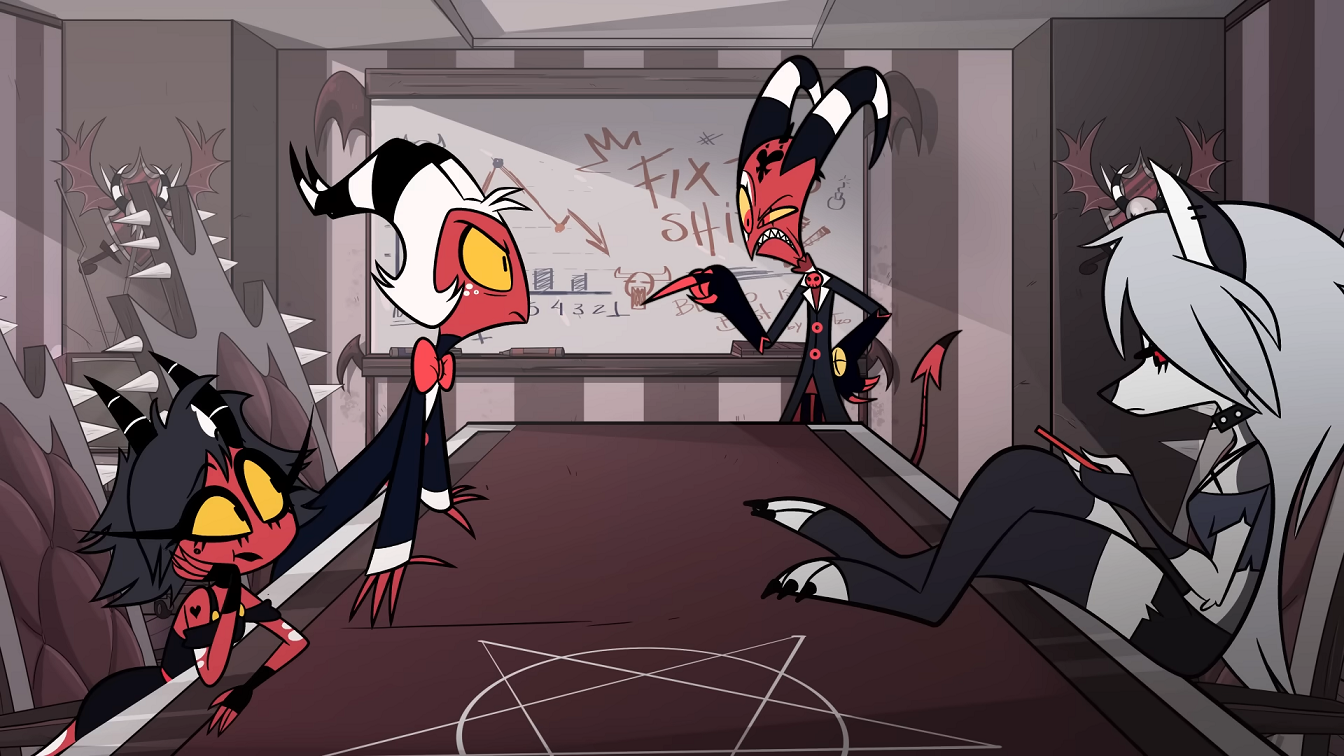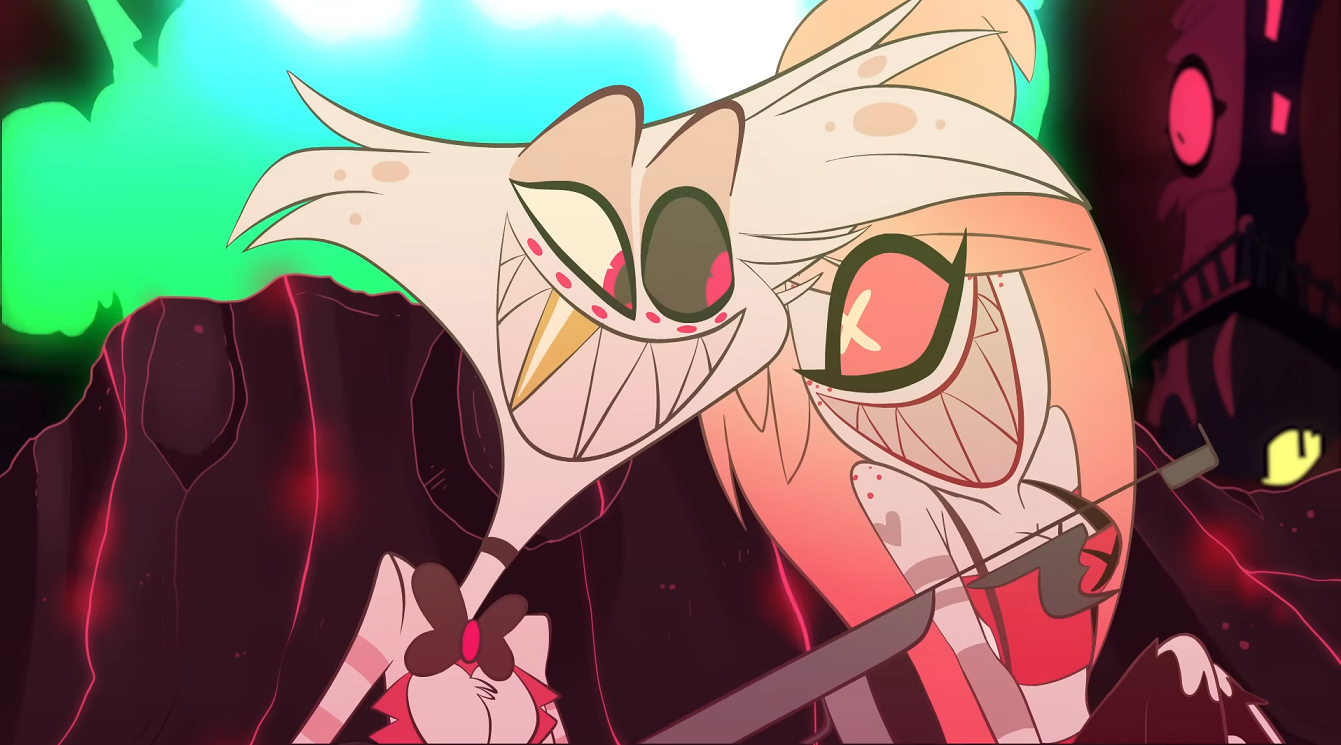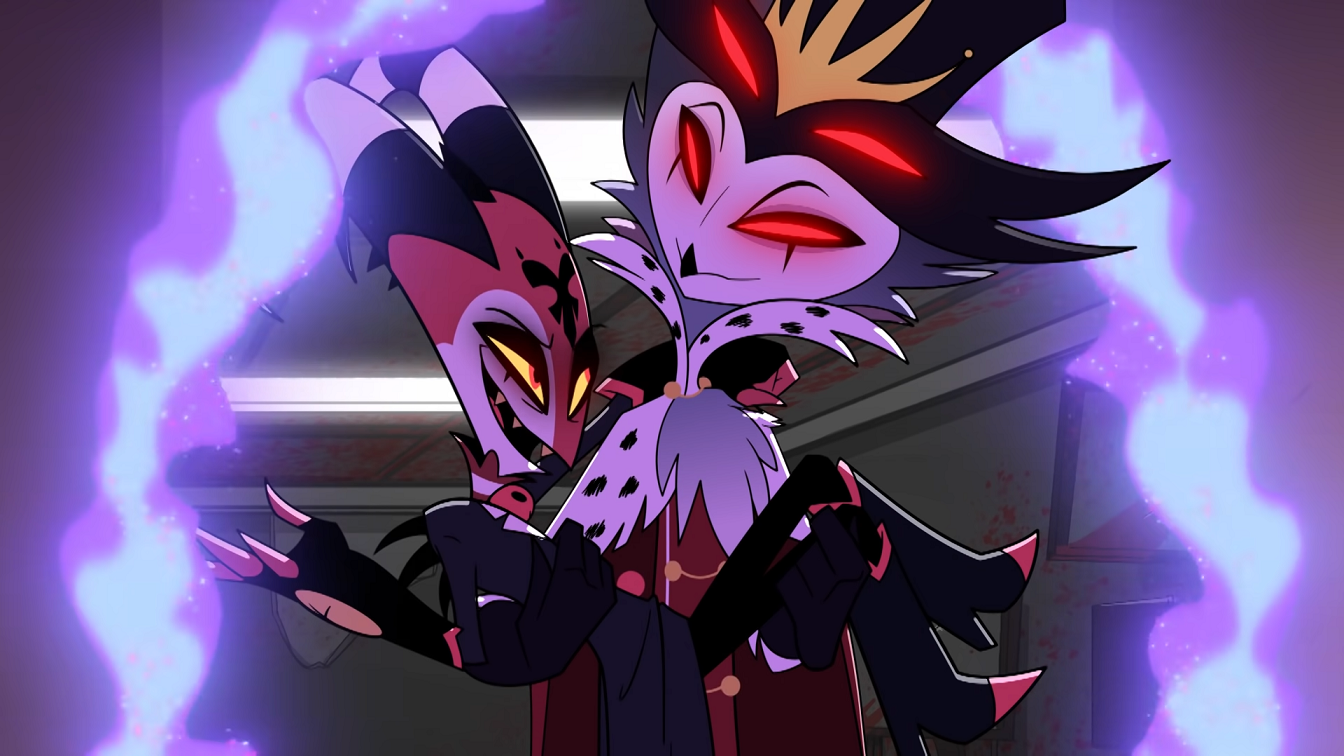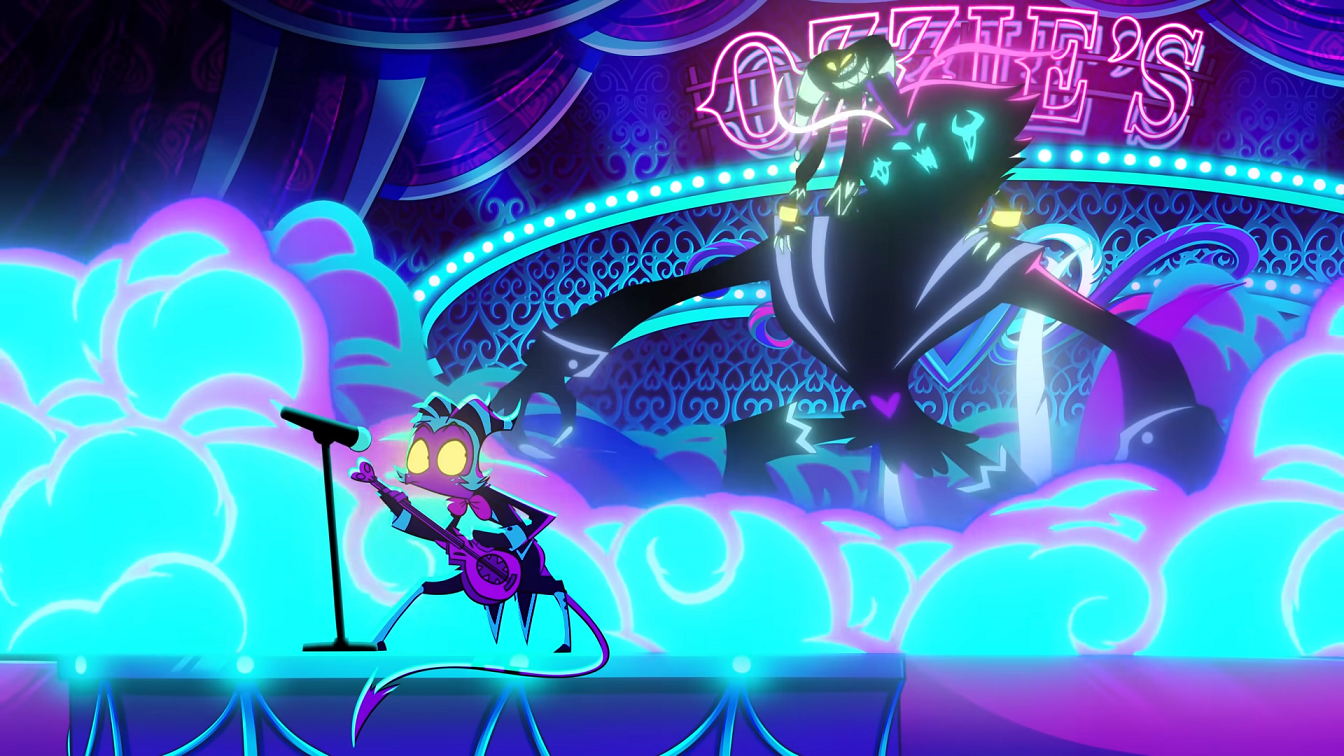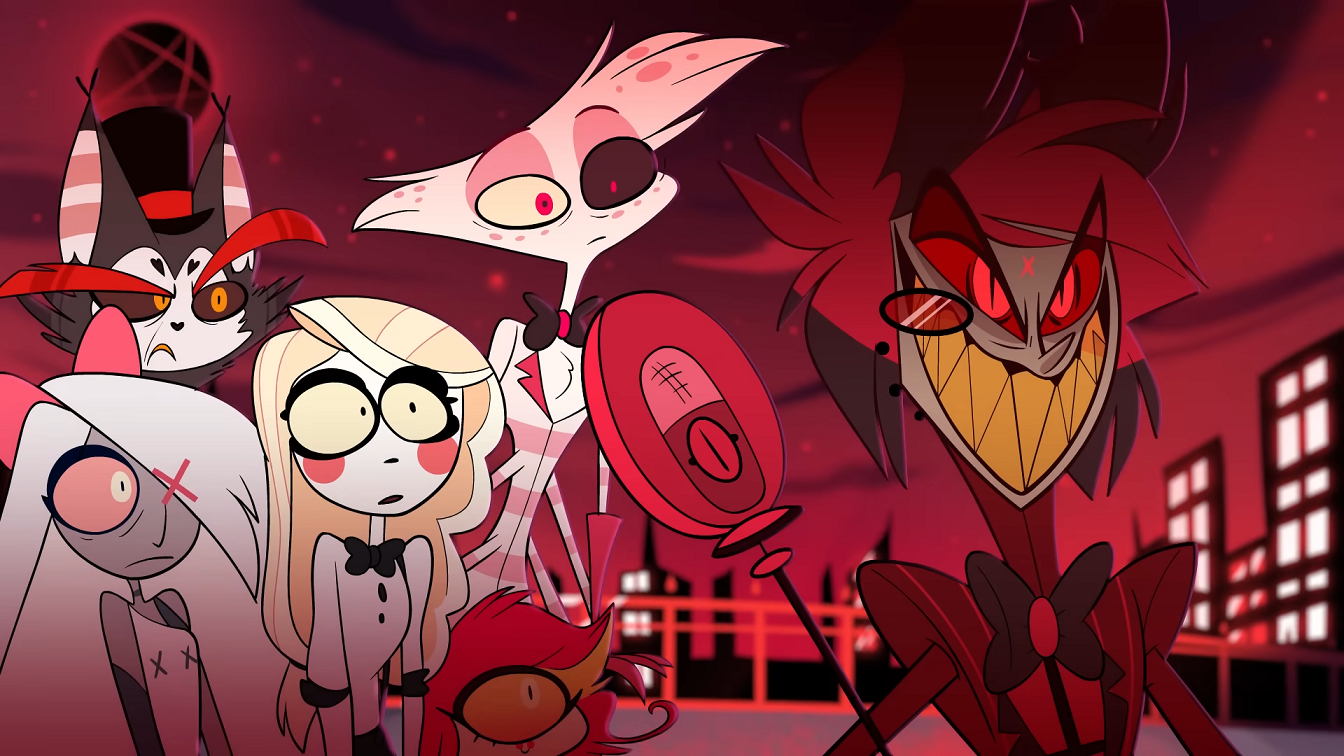You Should Be Watching Hazbin Hotel and Helluva Boss
I’ve been hearing about Helluva Boss for the longest time in animation circles. It’s been praised as a triumph of indie animation and has been on my list forever. I finally decided to try it as well as the pilot for this setting’s flagship show, Hazbin Hotel.
So I didn’t know when I jumped into Helluva Boss that it was a spinoff of Hazbin Hotel. I actually heard way more about the second show than I ever did about the first entry. Which was surprising to me granted that Hazbin Hotel has been around longer and has way more views on YouTube. I had seen these characters from both series floating around social media, but I did not realize they were in the same universe. Thus, when I finished Helluva Boss and wanted more, I decided to tackle the Hazbin Hotel too since it only has the pilot episode and the “Addict” music video. This will be a review of both because they are very much tied together.
The shows were created by Vivienne "VivziePop" Medrano in the animation studio she founded being SpindleHorse Toons. They are adult animated comedy musicals with Helluva Boss having a more workplace angle with a side of a possible romance between two characters. We don’t know the overall direction for Hazbin Hotel yet, as all we have is the pilot. Hazbin is coming this summer as a full show though we don’t know where it will air yet. The best part is everything is currently free to watch on Medrano’s YouTube channel.
That’s right. They’re FREE!
Hazbin Hotel focuses on Charlie, the princess of Hell and the daughter of Lucifer. Because of overcrowding in Hell, once a year angels come down from Heaven and murder demons to make more room. This causes massive turf wars as demon overlords try to grab more power in the void left behind. Discouraged by the pain inflicted on her people, Charlie decides she wants to open a hotel to help demons rehabilitate to get into Heaven. Joined by her girlfriend Vaggie, their first client is Angel Dust, a drug addict who is an adult porn star looking to escape his abusive employer. Things get complicated with the arrival of the Radio Demon, Alastor, a powerful and chaotic being who takes interest in Charlie’s hotel. Alastor is someone to be feared, but Charlie decides to accept his help.
Its spinoff show, Helluva Boss, is about an imp named Blitzo or “Blitz” as he claims the ‘o’ is silent. He has started a business, I.M.P., helping Earth-born sinners who have become demons get revenge on the living world. His employees consist of a married couple, the neurotic Moxxie and the lively Millie as well as Blitz’s adopted hellhound daughter, Loona. To pull off his business (which is technically not allowed in Hell), Blitz starts an affair with one of the Goetic Princes of Hell, Stolas, who is actually slowly falling in love with Blitz. The series balances the growing personal drama of the cast and the adventure of the week format.
These shows are clearly a labor of love, and their quality is better than a lot of series on streaming services. I’m sure most streaming services would kill for their numbers as Helluva Boss’ pilot is currently sitting at 53 million views with Hazbin Hotel raking in a whopping 83 million. Those are insane numbers for any show, much less an adult animated series. But what is it that makes these shows so good?
The world-building and the characters’ relationships are by far my favorite part of the shows. They’re both set in the same world, but they focus on different parts of the setting. Where Hazbin Hotel is tailored to the upper class of Hell with the focus on Charlie, Helluva Boss is more about the lower class citizens. But even that isn’t cut and dry either. There are also the Earth-born sinners who have become demons making a class difference between them and the natural-born citizens. The Earth-born demons can only stay in the top ring of Hell where Hazbin will be focused. Helluva Boss has its characters explore the other rings as natural-born citizens can move between the other rings. Charlie wants to help the Earth-born sinner demons reform. Meanwhile, Blitz and his team are making more sinner demons when they kill evil-doers in their series which is not helping the overcrowding problem Charlie wants to fix in her show. While they have yet to crossover, the audience can start piecing together a marvelous tapestry of how incredibly rich this world is. The shows do affect each other, but they each stand on their own as well. It is not required viewing to see one and understand the other.
And the designs of the characters add so much to make the shows visually pleasing to look at. For example, the Earth sinners take on a representation of their personalities when they become demons. Angel Dust was part of his family’s mafia, so he has a spider design from being in their web. Alastor was a radio star when he died in the 1930s, which is why he has that tinny radio voice, and his cane doubles as a microphone. The imps are clearly designed differently from the hellhounds, the overlords, and the royals. Each class has its unique style of dress too. It leads to an insanely pleasing series to look at.
Focusing more on Helluva Boss at the moment, the character relationships are wonderfully explored. That’s not to say that Hazbin Hotel is lacking in that department. In just one pilot and music video, they really flesh out the friendship of Angel Dust and Cherri Bomb, Charlie and Vaggie as girlfriends, and clearly set some huge red flags when it comes to Alastor. Helluva Boss just has more episodes to work off at the moment. I do think the pilot episode of Helluva Boss is the weakest part of both series as it’s definitely trying to push being overly edgy. Once the show gets rolling properly, it strikes a nice balance between its black comedy and deeper heartfelt moments. In fact, it earns those quieter moments and gut punches. Both shows are heavily character-focused, letting them drive the narrative.
It would be easy for the Helluva Boss characters to be one note for a good chunk of season one. But these creators are great at what they do, and truly show off their skills. In an incredibly short amount of time, they balance several backstories, a will-they won’t-they romance, develop multiple parent-child troubles, workplace relationships, and priming a few villains, on top of crafting a lush world in a span of about two and a half hours worth of content (currently). Three hours total if you toss in Hazbin Hotel with it. You really start seeing how fleshed out these people are by episode two or three, and Helluva Boss really gets its footing to take off from there.
Moxxie and Mille’s marriage is tooth-rottenly sweet, and it’s nice to have an on-screen happy relationship with little drama which is actually fresher than one would think. Loona is clearly overcoming her past trauma while figuring out Blitz as a relatively new parent. The adventures of the I.M.P. crew are a delight as they do everything from face off against a Succubus over a parking spot to fighting C.H.E.R.U.B., Heaven’s counterpart trying to save the souls that I.M.P. is murdering.
But it’s absolutely Blitz and Stolas’ romance that is everything to me! To get personal for a second, it’s many of my favorite romantic tropes rolled up into one series: different class backgrounds, power dynamics, two single dorky dads trying to raise their daughters, insecurities abound, a childhood background together, and miscommunications. I also love when there are major height differences between two lovers too. I live for stuff like this! The series nails these nuances with these two because they are very much the core relationship of the story. The entire premise of Helluva Boss depends on the careful balance between Blitz and Stolas’ relationship, and the creators succeed in building their feelings, the exploration of their turbulent rapport, and teasing if they will stay together in the long run.
Both series are very queer with the majority of the casts falling under the LGBTQIA+ umbrella. I am always here for some queer rep with fleshed-out characters. Though it must be said, I totally understand the very valid criticisms around these series.
Having a bunch of characters who are queer as demons in Hell is definitely not the best look. While the creator has said before she’s approaching these shows like mythology and not a commentary on religion, it still feels quite icky to have these optics without, say, showing us queer angels in Heaven too, or something. We don’t know what either show has in store as Hazbin Hotel hasn’t aired past the pilot and Helluva Boss is still ongoing. There could be plans in the long run to balance these things out that we just haven’t gotten to yet. Maybe God is gay in this universe? We simply don’t know yet.
For right now speaking as a queer woman, it doesn’t bother me, but I do completely understand why some people really dislike this aspect of the shows. I might change my mind later down the line if we get to the end and the only queer characters are in Hell. Then, I can see myself having a massive issue with this. I’m happy to wait to see what happens and not judge it too quickly. While these shows do hit on some not-great stereotypes at times, I do feel like it is balanced with the good work it is doing. I will always want a show to honestly try and create queer rep with good intentions and come up short than not try at all.
My last favorite point about these shows that I adore is they are both musicals. Some of these songs are spectacles to behold. One standout number came in Helluva Boss episode 6 “Truth Seekers” when Moxxie and Blitz are hopped up on truth gas. The ever-straight-laced, classical-loving Moxxie belts his side of the musical in a gorgeously animated Phantom of the Opera homage. From Blitz’s point of view, it’s a horror show nod to Pink Floyd’s The Wall. The two characters reach different conclusions emotionally with Moxxie feeling closer to his friend with everything off his chest and Blitz feeling more isolated in his personal relationships.
All the musical numbers are great from the cutesy lovey-dovey numbers to the lore-building prophecies to the more chaotic entries from the world of demons. Hazbin Hotel smashes Charlie’s main song as she lays out her plans to help her people. It really lets her shine as the main character. This is highlighted even more when Alastor does his own inversed version of her song about his twisted desires to be part of the hotel plans. Pun intended, I’m addicted to “Addict” about Angel and Cherri. These shows really balance the big show-stoppers with the quieter ballads. I truly hope down the line we get all of these soundtracks released so I don’t have to sit there on loop with YouTube.
Overall, I’m so glad I finally gave Helluva Boss a chance and discovered Hazbin Hotel in the process. I do think it will be interesting to see how both shows continue forward once Hazbin is ongoing in whatever form it’s distributed come summertime. I don’t know if this is going to be a situation like Critical Role greenlighting the Mighty Nein after the success of The Legend of Vox Machina. Maybe Helluva Boss will get picked up too.
Regardless, go check them out! It’s all free on YouTube, and if you like a great adult animated series with a ton of heart, chaos, and music, then you should be watching Hazbin Hotel and Helluva Boss.

